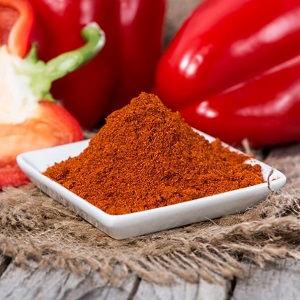- No. 268 Xianghe Street, Economic Development Zone of Xingtai city, Hebei 054001 China
- Byron@hbhongri.cn
paprika red chilli powder
The Spicing Up of Culinary Traditions Paprika and Red Chilli Powder
When it comes to enhancing flavors in the culinary world, few ingredients can compete with the vibrancy and versatility offered by paprika and red chili powder. These two spices not only bring a splash of color to dishes but also impart distinct characteristics that can elevate a simple meal into an unforgettable experience. Let's delve deeper into the origins, uses, and health benefits of paprika and red chili powder.
Origins and Varieties
Paprika is a spice made from the ground pods of Capsicum annuum, a type of chili pepper. While its roots can be traced back to Central America, it became an essential part of European cuisine, particularly in Hungary and Spain. There are several varieties of paprika, ranging from sweet and mild to hot and smoky, offering a wide range of flavor profiles. Hungarian paprika, for example, is known for its deep red color and sweet notes, while Spanish paprika, or pimentón, can deliver a smoky taste thanks to traditional drying methods employed in its preparation.
In contrast, red chili powder, made from ground dried chili peppers, is often spicier and can really pack a punch in terms of heat. This spice is widely used across various cuisines, especially in Indian, Mexican, and Thai cooking. The type of chili pepper used significantly affects the heat level and flavor, giving cooks ample options to tailor their dishes to their taste preferences.
Culinary Uses
Both paprika and red chili powder can be used in a multitude of dishes, and their versatility is one of the reasons they are kitchen staples. Paprika is frequently employed in European dishes, lending its sweet and smoky flavors to stews, soups, and rubs for meats. It shines in goulash, a traditional Hungarian dish, where it forms the backbone of its flavor profile. Additionally, paprika is often used as a garnish, adding a vibrant red hue to deviled eggs or potato salads.
paprika red chilli powder

Red chili powder, on the other hand, is indispensable in many spicy cuisines. In Indian cooking, it is a key ingredient in masalas, enhancing the flavors of curries, dals, and tandoori dishes. In Mexican cuisine, it adds heat to salsas, enchiladas, and mole sauces. The choice between paprika and red chili powder can greatly influence a dish, allowing cooks to adjust the level of heat and flavor complexity according to their audience.
Health Benefits
While the primary role of paprika and red chili powder is to enhance flavor, they also offer numerous health benefits. Paprika is rich in antioxidants, particularly carotenoids, which promote eye health and improve immune function. It contains vitamins A, C, and E, making it a nutritious addition to any diet.
Similarly, red chili powder contains capsaicin, the compound responsible for the spice's heat. Capsaicin is known for its metabolism-boosting properties and potential to aid in weight loss. Studies have even suggested that it may help lower blood pressure and improve cardiovascular health. Furthermore, the spice has natural anti-inflammatory properties, making it beneficial for individuals suffering from conditions like arthritis.
Conclusion
Both paprika and red chili powder hold unique places in the culinary world, each bringing their distinct flavors and health benefits to the forefront of cuisine. Whether you’re looking to add a subtle sweetness or a fiery kick to your dish, these spices offer endless possibilities. So, the next time you find yourself in the kitchen, consider reaching for these flavorful gems to create a delightful and health-conscious meal that honors culinary traditions from around the globe. With paprika and red chili powder, you’re not just cooking; you’re celebrating the art of flavor.
-
Turmeric Rhizome Powder: A Golden Treasure from Roots to TableNewsJul.28,2025
-
The Versatile Application Of Crushed Red Hot Peppers: Lighting Up The Red Flames On The Dining TableNewsJul.28,2025
-
The Paprika: A Touch Of Vibrant Red In Color, Flavor, And CultureNewsJul.28,2025
-
Ground Turmeric: A Modern Examination of an Ancient SpiceNewsJul.28,2025
-
Capsicum Liquid Extract: Features, Applications, and ChallengesNewsJul.28,2025
-
Application of Capsicum Liquid Extract in FoodNewsJul.28,2025







